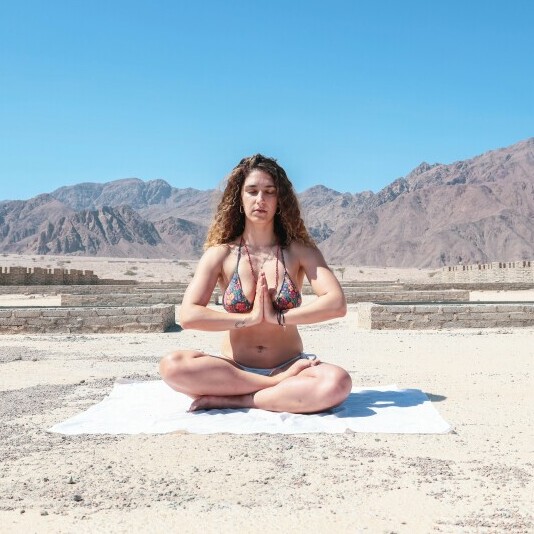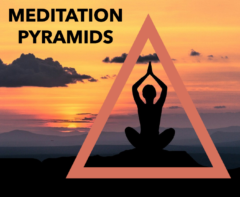Meditation isn’t some mystical art reserved for monks in the mountains. It’s accessible, and oh boy, does it pack a punch! Dive into a practice that’s been around for thousands of years, originally blooming in ancient traditions like Hinduism and Buddhism. Whether you’re going full lotus position or just finding a comfy chair, meditation’s about finding focus and inner peace.

Let’s talk types. Vedic meditation is one you might find interesting. It’s mantra-based, giving your mind a little something to latch onto while stress and anxiety take a back seat. Then, there’s mindfulness meditation, which is like giving your brain a breath of fresh air. You’re just paying attention to the here and now without judgment. And don’t forget guided meditation, where even beginners can follow along with someone else’s soothing voice. It’s as simple as pressing play.
There’s a lot floating around about what meditation is and isn’t. Some folks think you need to sit cross-legged for hours or some special skill set, but that’s far from the truth. In reality, meditation can be a quick fix or a daily habit. It’s about finding what fits your style and flow.
But what really matters? Aligning your practice with your goals. Need to de-stress? Mindfulness might be your jam. Looking to boost focus or creativity? Maybe a body scan meditation has got your number. Whatever it is, it’s about tailoring your routine to what you need. There’s no one-size-fits-all, so don’t be afraid to experiment and find what vibes with you.
Shocking Physical Health Benefits of Meditation
Meditation does more than just chill you out—it can actually shake up your physical health in ways you might not expect. You might be thinking: How can sitting quietly do all that? Hang tight, because it’s all about small practices that snowball into big changes.
One jaw-dropper is meditation’s ability to reduce blood pressure. Regular sessions make your blood vessels more relaxed and flexible. It’s like giving your heart a well-deserved day off without the tropical getaway!
And guess what? Meditation can boost your immune system. Yep, by lowering stress hormones like cortisol that wreak havoc on your body, meditation makes you less likely to catch those pesky bugs flying around during flu season.
For those battling chronic pain, mindfulness meditation can be a game-changer. It teaches your brain to respond differently to pain signals, sometimes even reducing the need for medication. Talk about a win-win!
Meditation isn’t miracle water, but its effects on physical health are scientifically backed by loads of research. So if you’re eyeing better health, adding a few minutes of meditation could be just the ticket.
Scientifically Backed Physical Health Benefits
If you’re looking for solid proof that meditation works, science has your back. Studies galore show how sitting still can spark some serious positive vibes in your body.
One standout is the way meditation shifts around the architecture of your brain through a process called neuroplasticity. Think of it like remodeling your mind to enhance focus, improve emotion control, and even boost your learning abilities. Pretty wild, right?

There’s also this cool mind-body connection meditation taps into. Your brain’s magical powers to influence your body’s health mean less stress equals fewer ailments. It’s like giving your body its own health manual.
Research also sheds light on meditation’s role in managing chronic diseases like diabetes and hypertension. It doesn’t replace standard treatment but adds an extra support level that can make dealing with these conditions easier.
So, what’s the takeaway? Make meditation a part of your wellness toolkit. It’s not just woo-woo fluff; it’s grounded in science, offering a reliable boost to your physical health.
Unveiling the Psychological Benefits of Meditation
Meditation’s not just a boost for your body, it’s a serious game-changer for the mind too. Unlocking your mental potential is more doable than you might think.
First up, there’s focus. Meditation helps sharpen your concentration and attention span like nothing else—important stuff in today’s busy world where distractions run rampant.
Emotional stability is another biggie. Regular practice helps manage mood swings and develop a compassionate mind-sight. This isn’t about being all zen 24/7, but more about reacting thoughtfully instead of just reacting.

Meditation shines when it comes to stress relief. Just a few minutes can melt away the tension, leaving you feeling lighter. Plus, it teaches your brain to deal with chaos a little more gracefully.
Need a spark of creativity? Meditation enhances divergent thinking, which can help connect the dots in new ways. So, whether you’re solving a problem or working on a masterpiece, it’s a tool worth keeping in your mental toolbox.
It’s not just about knowing yourself better—it’s about feeling better, too. Meditation helps to build self-awareness, encouraging personal growth and soul-searching. Who doesn’t need a little bit more of that in their life?
Integrating Meditation Into Your Daily Routine for Optimal Health
Starting a meditation routine might seem tricky at first, but it’s all about finding what fits your life. Even a short burst of mindfulness can pack a punch. Starting small, like with five minutes of meditation, can ease you into making it a habitual part of your day.
There are no shortage of tools to help kickstart your practice. From apps with guided sessions to online communities and classes, there’s plenty of support right at your fingertips. No need to go into it alone!
Hearing others’ stories can be super reassuring. Many beginners find that meditation slowly becomes their secret weapon against stress and burnout, while seasoned meditators often credit long-term practice with more patience and clarity.
Setting realistic goals is key. Maybe start with meditating twice a week or explore different techniques until you find what resonates. It’s important to remember that meditation is a personal journey with no right or wrong way to go about it.
Ultimately, making meditation a part of your life is about enhancing your well-being and exploring the benefits you’ve learned about. Keep it simple, be patient with yourself, and enjoy those little moments of peace that meditation brings.


Hey Alan!
Just read your piece on meditation and physical health, and holy smokes, you’re onto something BIG here!
First off, I love how you’ve knocked down those stuffy stereotypes about meditation being some mysterious mountain-top practice. But here’s where I think we can crank up the voltage on your message even more…
You know what really grabbed me? That bit about neuroplasticity, it’s like your brain is getting a home renovation, but instead of new kitchen cabinets, you’re getting better focus and emotional control! Have you thought about leading with that? I mean, who doesn’t want to be their own brain’s interior designer?
And that comparison of meditation to giving your heart a “well-deserved day off without the tropical getaway”, is pure gold! But let’s push it even further. What if we positioned meditation as the Netflix-and-chill equivalent for your nervous system?
Quick suggestion: You’ve got some killer scientific backing in there, but let’s make it dance! Instead of just mentioning studies, how about we throw in some “imagine this” scenarios?
Like: “Imagine your immune system wearing a superhero cape, that’s basically what happens when you meditate regularly!”
Also, loving the practical approach, but let’s get even more real with it. How about adding some “meditation for real people” moments? You know, like “Yes, you can meditate while waiting for your coffee to brew” or “Even your cat’s purring can be a meditation trigger.”
Cheering you on!
Eric
Hi Eric!
Thank you for such an amazing response! You’ve nailed exactly what I’m aiming for—breaking down meditation into something everyone can connect with, without needing to climb any mystical mountains. I love your idea of leading with the neuroplasticity angle; that “brain renovation” metaphor is brilliant! Honestly, who doesn’t want a mental upgrade like they’re remodeling their kitchen? And yes, the Netflix-and-chill vibe for the nervous system might just be the way to get people realizing that meditation is a true “me-time” practice for body and mind alike.
Your “imagine this” scenarios are golden, too! I can totally see how adding some vivid images like the superhero-caped immune system would make the science stick. And your “real people” tips are spot on; meditating while the coffee brews or tuning into a cat’s purr as a meditation trigger is perfect for making this accessible. I’m thrilled to hear these suggestions and will definitely work on integrating more of that relatable vibe!
Thank you again for the encouragement and fantastic feedback—I’m so pumped to refine this message with your insights!
Kindest regards
Alan
Hi Alan, I’ve come across your post at the just the right time because I have been meditating as soon as I get up each morning at 5am for 6 days a week. I’ve been doing it for about 3 months now and it really has made a difference to my morning routine. I wake up, get out of bed and meditate. It sets me up nicely before I start my morning workout. Before meditating I used to have to force myself out of the bed and downstairs. Now, I look forward to getting up and doing my short meditation before I do anything else at all.
I’m intrigued to know more about body scan meditation. Can you provide some insight as to what is involved in this please?
Thank you for sharing your meditation journey—what an inspiring routine you’ve created! It’s fantastic to hear how meditation has not only helped you start your day with energy and focus but has also transformed your mornings into something you actively look forward to. Combining meditation with your morning workout is such a powerful way to boost both your mental and physical well-being.
Regarding body scan meditation, it’s an excellent practice to incorporate into your routine, especially if you want to enhance mindfulness and relaxation. A body scan involves systematically focusing your attention on different parts of your body, one at a time, to notice sensations, tension, or areas of relaxation. Here’s a brief overview to help you get started:
Find a Quiet Space: Sit or lie down in a comfortable position where you won’t be disturbed.Settle Your Mind: Close your eyes and take a few deep breaths to center yourself.Start at the Top: Begin by focusing on the crown of your head. Notice any sensations, tension, or even the lack of sensation.Work Your Way Down: Gradually bring your attention to each body part—your forehead, jaw, shoulders, arms, chest, abdomen, legs, and feet—pausing for a moment to observe each area.Release Tension: If you notice any tightness, imagine breathing into that area, allowing it to soften and relax as you exhale.Complete the Process: Once you’ve scanned your entire body, take a moment to notice how you feel as a whole before opening your eyes.
This meditation is perfect for promoting relaxation and awareness and can even help improve sleep if practiced at night. Let me know how it works for you, and I’d be happy to offer more tips or answer any questions as you explore this practice further!
Kindest regards,
Alan